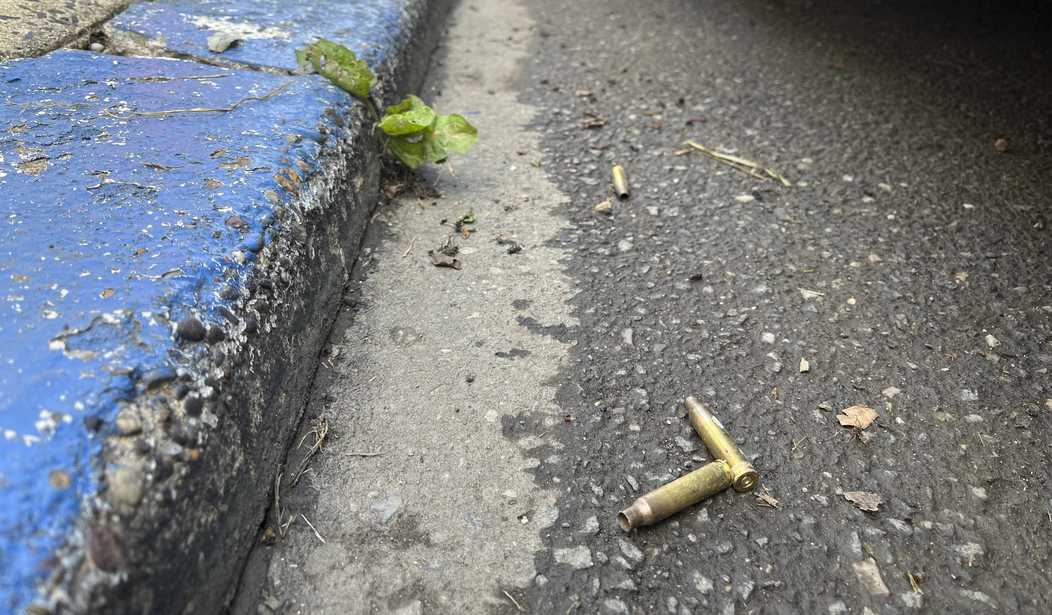If you’ve listened to Philadelphia Mayor Jim Kenney or District Attorney Larry Krasner pontificate about the active shooter incident in the city on Monday night, you might have been left with the impression that a firearm gained sentience and started shooting all by itself. Rather than point the collective finger at the perpetrator of this attack, both the mayor and D.A. have been blaming the guns and the gun laws in Philadelphia.
“I’m frustrated and outraged that mass shootings like this continue to happen in communities across the United States,” he said. “This country needs to re-examine its conscience and find out how to get guns out of dangerous people’s hands. … We are begging Congress to protect lives and do something about America’s gun problem.”
Krasner called for Pennsylvania legislators to act.
“It is disgusting that you can go to New Jersey and find a whole list of reasonable gun regulation that we don’t have, that you can go to Delaware and there’s almost as long a list of reasonable gun legislation that we don’t have,” he said. “Some of that legislation might have made a difference here.”
Like what, exactly? California has some of the most restrictive gun laws in the nation, and yet it had more active shooting incidents than any other in 2021 (the last year for which data is available). If Krasner wants to blame an individual’s twisted actions on a lack of gun control laws, he should be able to lay out exactly what law would have made a difference.
He can’t, of course. And it’s telling that while Krasner was demanding New Jersey and Delaware-style gun control Kenney directed his ire at Congress, suggesting that he believes no state-level gun laws will make a difference. These two clowns are desperate to point the finger in any other direction other than at themselves and their “leadership”, including Krasner’s declining rates of both prosecutions and convictions.
Mark Bergstrom, executive director of the Pennsylvania Commission on Sentencing, presented the data-rich Comprehensive Study of Violations of Pennsylvania’s Uniform Firearms Act (VUFA). From 2015 to 2020, the study examined arrests and convictions over firearms charges, misdemeanor, and felony charges, with or without additional violence charges.
Bergstrom noted that unlike the other 66 counties in Pennsylvania, all charges in Philadelphia must be approved by the district attorney’s office. As the state’s lone first-class county, it is responsible for over a third of all VUFA dockets. More than half of those are co-charged with violent offenses. The number of VUFA dockets filed, especially those with first or second-degree felony charges, has risen since Krasner took office in 2018. The downward trend from 2015 to 2017 of violent offenses accompanying VUFA dockets reversed from 2018 to 2020.
While the study found statewide guilty verdicts have dropped in the timeframe, the sharpest decline in rates appears to be from Philadelphia. Krasner’s office has seen conviction rates on VUFA charges with first or second-degree felony drop from 88 percent convicted in 2015 to 69 percent in 2019 and 64 percent in 2020. Overall, the VUFA conviction rate in the city is 77 percent in the timeframe studied, trailing the statewide average of 83 percent.
The increase in cases dismissed or withdrawn by prosecutors has been driving down the conviction rate in Philadelphia. The city’s acquittal rates and been rejected by the district attorney’s office, which covers cases withdrawn after the initial filing, are higher than the state averages. The “nolle pros” dispositions rate has jumped from 7 percent in 2015 to 21 percent in 2020.
In reviewing sentences, Bergstrom’s data refuted some of Krasner’s previous claims of securing longer prison terms.
Krasner’s office has secured a lower rate of VUFA sentences that fall within the state’s sentencing guidelines (28 percent) than statewide (43 percent). Philadelphia also saw more cases fall below the sentencing guidelines (34 percent) than statewide (25 percent). However, Philadelphia saw 5 percent of cases each at the aggravated and Above levels, each above the statewide levels.
Bergstrom described the pattern as “extreme on both ends.” Philadelphia also has higher recidivism rates for VUFA charges within three years.
Authorities haven’t said if the suspect in Monday’s night’s shooting had any previous arrests or a criminal history, but if there was any reason to believe the shooter was dangerous before they started randomly shooting at passerby then that begs the question of why the dangerous individual wasn’t in custody; either in the criminal justice system or in a mental health facility.
For Kenney and Krasner, the answer is simple: this is a “gun problem”, not a people problem. Not only does that defense suit their anti-gun ideology, it allows them to deflect attention away from their own failures and unwillingness to treat serious violent offenders as a serious issue in the city. It’s shameful, but it’s also par for the course for the pair.








Join the conversation as a VIP Member